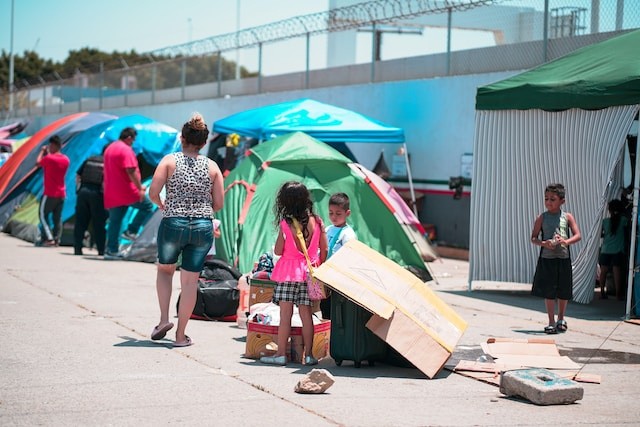
In what can be viewed as a historic decision, a federal judge blocked the reinstatement of a contentious Trump administration policy this past Friday. Effectively, immediately, the separation of families at the border as a means of discouraging immigration is prohibited for eight years. This ruling could have considerable consequences if the former president decides to retake the helm at the White House next year.
A Shameful Chapter in U.S. History
"This division between thousands of families is one of the most heinous chapters in our country's history," U.S. District Judge Dana Sabraw noted as he granted the settlement. An agreement was reached between the families. On behalf of the American Civil Liberties Union and the Justice Department, ending a nearly seven-year legal dispute.
Appointed by George W. Bush, Judge Sabraw had ordered the cessation of these separations in June 2018. This verdict came only six days after then-President Donald Trump single-handedly called off the practice amid a whirlwind of international criticism. The judge also decreed that the government should ensure the reunification of the children with their parents within the next 30 days.
Providing Relief to the Migrants
This declaration started a frantic hustle due to the unlinked government databases. Children were scattered across shelters nationwide without knowing the identity or whereabouts of their parents.
Judge Sabraw took the opportunity to congratulate attorneys on both sides and reflect on the initial allegations and their subsequent revelations. His increasing dismay was palpable as he remembered the unfortunate circumstances under which this policy was enforced in 2017 and 2018. He referenced a previous order that detailed the practice as "brutal, offensive, and a blatant violation of the principles of fairness and decency."
In 2018, many parents were deported without knowing the location of their children. "Simply cruel," Judge Sabraw described, referring to a court filing from the same year.
The Policy's Implication
Presently, the government and volunteers are still trying to track down 68 children separated under the policy. The ACLU stresses that it's crucial to determine their safety and whether they have been reunited with their family or caregivers. Judge Sabraw expressed his gravest concern: the children were always left unaccounted for.
In the settlement, any policy like the Trump administration's "zero tolerance" that resulted in more than 5,000 children being separated from their parents arrested for illegal entry will remain prohibited until December 2031.
However, limited circumstances might still warrant the separation of children. These conditions, enforced for years, include instances of suspected child abuse or significant criminal convictions of the parent. Uncertainty about the adult being the parent also falls under these circumstances.
Possible Benefits for the Separated Families
Families that endured separation might qualify for additional perks, like legal status that lasts up to three years based on humanitarian parole or reunification in the U.S., covered by government expenses. Other benefits include a year's worth of housing and legal aid in immigration court, as well as three years of counseling. However, the settlement will not offer families any monetary compensation due to bottlenecks in negotiations during the Biden administration in 2021.
Trump's Future Plans
As for Trump, he remains tight-lipped on whether he would try to resume family separations if he makes a comeback in the next year's election. Last month, he defended the policy during an interview with Univision, claiming without evidence that it "stopped people from coming by hundreds of thousands."
The Department of Homeland Security, on the judge's ruling, quoted an earlier statement by Secretary Alejandro Mayorkas. The report underlines that the settlement reflects the nation's everlasting adherence to its most cherished values.
While grappling with the frightening chapter in our nation's history, ACLU attorney Lee Gelernt assures that Friday's court decision says it all. Seeming legal counsel can help you better understand and safeguard your rights if these immigration policies impact your family. Legal assistance is more critical than ever to navigate this complicated situation.




